Bex Marshall - "House Of Mercy"
Whether it’s for friends visiting her at home or folks she’s just met in a pub, Bex Marshall tries to perform in front of people every single day. “I’ll play them some songs,” she says. “I’ve found nothing more valuable than playing in front of an audience—it enhances my music.”
Marshall’s never been one to shy away from a crowd, and listening to the skillful bluesy twang of her guitar and the matching richness and intensity of her voice, one would be foolish to urge her otherwise. Her latest album, House of Mercy, merges every bit of blues, soul, roots, folk, and ragtime that has influenced her to create a colorful, fiery sound that matches her equally exuberant personality. The concept for the album came from her U.K. home base, with a little help from her husband and friends.
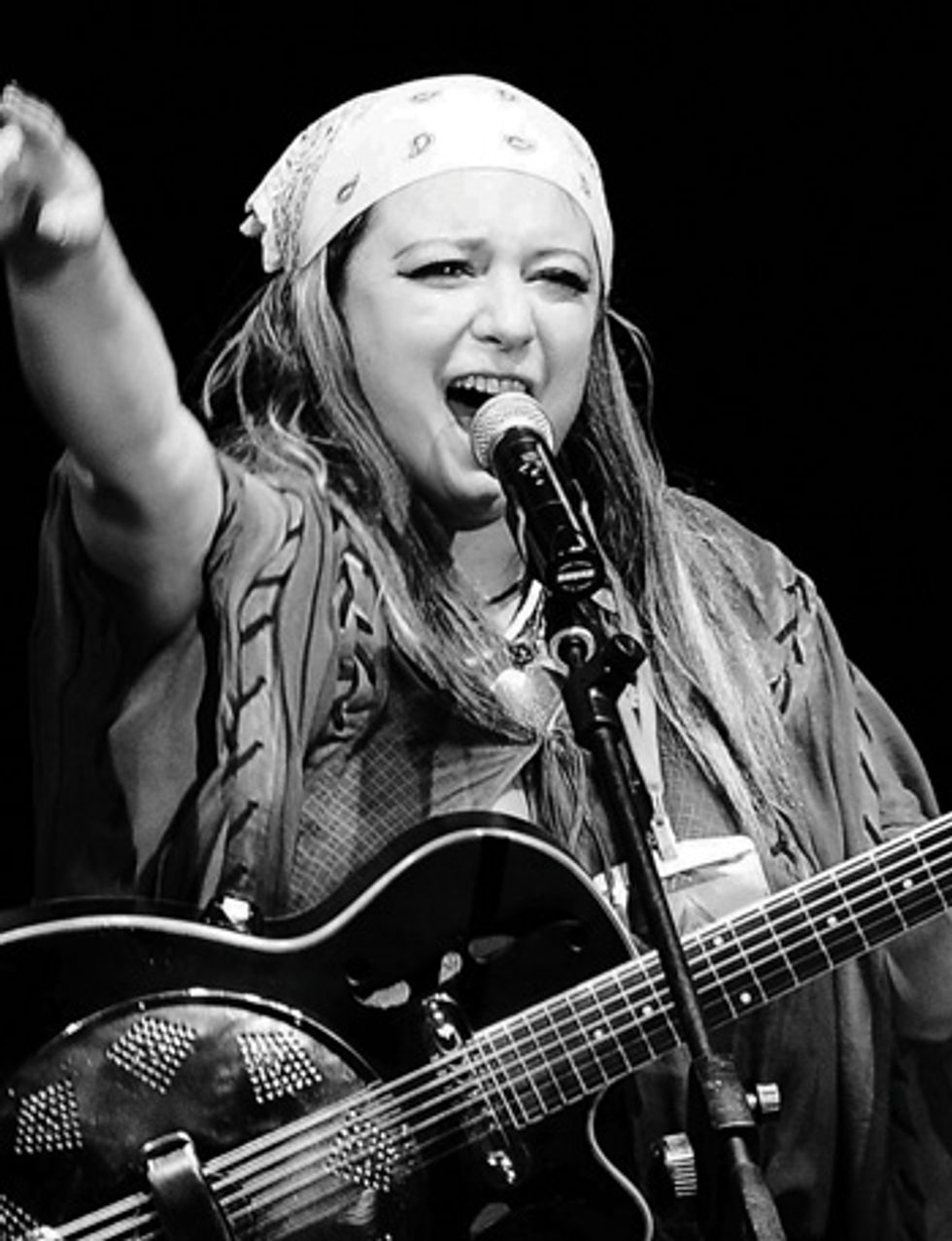
“House of Mercy is the name of the radio station that we run from our home,” Marshall explains. “We’ve had hundreds of musicians come through our doors and this album is a tribute to the music that goes on in our home and the music that surrounds us. The musicians that contributed to this are those who have come through, so it’s very special to us.”
The end result of months of writing and recording in her London home studio is a powerful album that displays her prowess as a guitarist and songwriter, and songs like “Gone Fishin’,” “Love,” and “Tough Times” exhibit her masterful use of slide guitar, soloing, and a unique approach to fingerpicking.
“I tried a lot of new techniques on this album,” says Marshall. “I’ve been developing a style that I use on my solo performances where it’s almost a ragtime technique with a percussive feel to it. I play with all the fingers on my right hand and I have really long nails, so I use all of them as a plectrum. I use a quick little butterfly frailing with pull-offs all over it, and that gets a lot of notes out at once.”
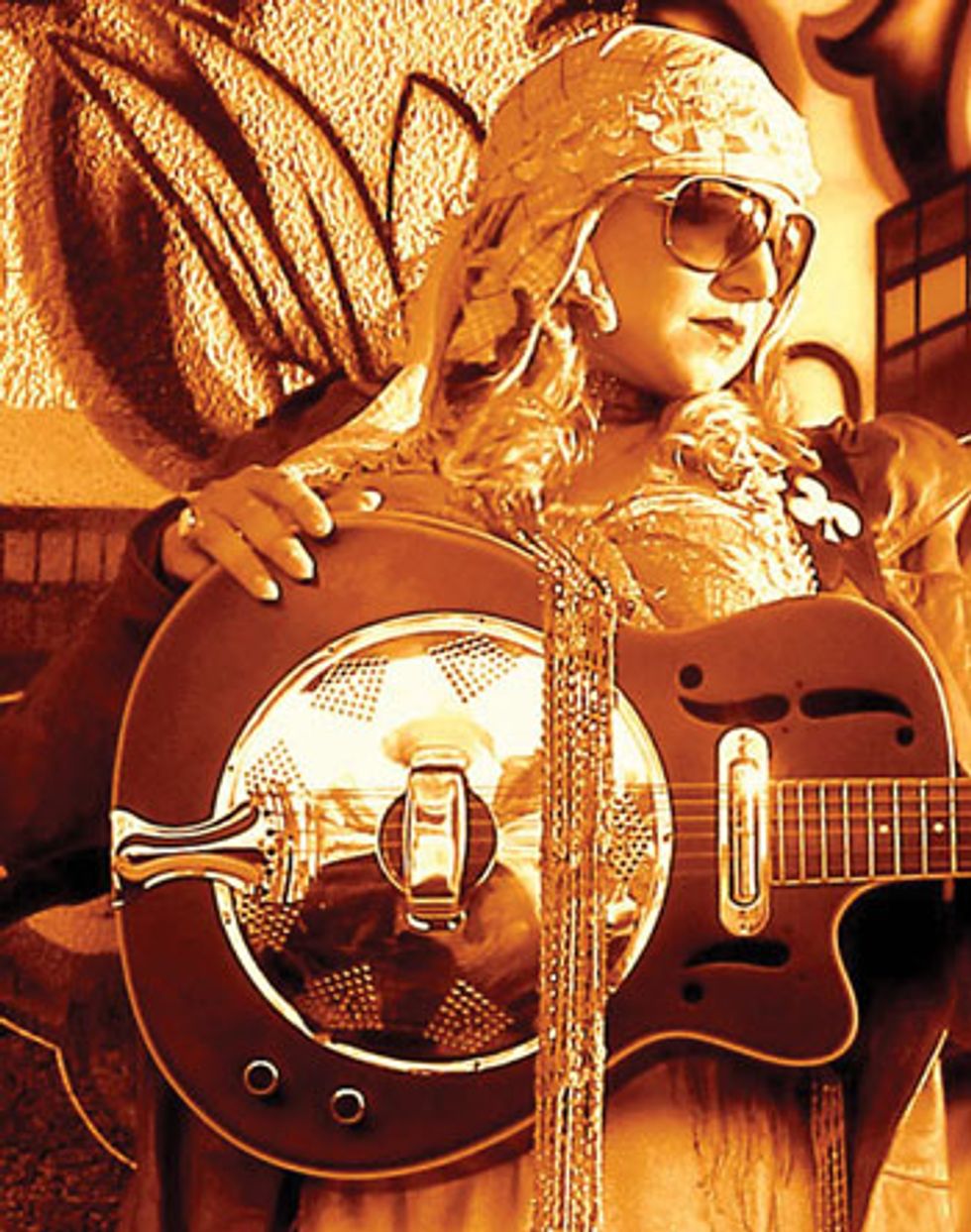
Her maturity and evolution as a guitarist is evident on this album, as her playing surpasses even that on her highly praised previous album, 2008’s Kitchen Table. Her diligence toward practicing her craft propelled her to create a name for herself early on in her career, though it took an unfortunate bit of tragedy to push her to realize her full potential.
“I wasn’t confident in doing lead parts or two-lined riffs in the beginning of my playing, but after my first album my bass player and producer Roland Harris committed suicide and I was the one who found him,” she says. “It really affected me, because he was such a good friend and my staunchest supporter. Within my anger I realized that I would play my own bass lines from there on out, so I began using my thumb technique to get the bass riff on top of the guitar riff. If he’s going to leave me, I’m going to do it myself. I’m sure he’s up there laughing at me now.”
Marshall’s weapons of choice to convey her complex and rhythmic riffs are her collection of Ozark electro-acoustic resonator guitars. Resonator guitars have a long history in ragtime, roots, and blues music, and their twangy sound and rustic timbre give Marshall’s music the authentic tone that her style calls for.
“The first band I took notice of that used a resonator guitar was Dire Straits,” says Marshall, “and I just loved how it sounded. I always thought they were cool-looking guitars, but when I first played one, I knew it was the only guitar I wanted to play. It’s got a dirty tone and it feels good to strum and it reacts to fingerpicking really well. The slide sounds great on it, but I try not to overplay with it because I love simple slide lines where one note will make you scream.”
Bex Marshall’s Gear
Guitars
Ozark 3515E Electro-Acoustic Biscuit Resonator, Ozark 3515 BTEC Slimline Resonator, Ozark 3616 Deluxe Biscuit Resonator, Eccleshall Electric Lady 103 Hardtail, 1963 Gibson Hummingbird
Amps
Fender Frontman 25R and 65R, Vox AC30
Effects
Marshall Bluesbreaker II Pedal
Strings
Martin Custom Light .011-.052
While resonator guitars are likely the only ones you’ll see her working onstage, it was an acoustic guitar that first piqued her interest in music. As a young girl growing up in the U.K., Marshall found the key to her destiny in an unlikely place.
“The exact moment that I first began playing a guitar was when I opened an old cupboard under the stairs of my home when I was 8 years old and found an abandoned guitar in there,” recalls Marshall. “It only had two strings and in that moment I knew it was mine. So I would sit in the kitchen and just strum away on it, and I realized I had urgency and a need to be able to play it. Once I met people who played, I learned very quickly on it. I immediately knew that was what I wanted to do.”
And even with the notoriety she receives for her playing, Marshall continually strives to better it, practicing every moment she can. But it’s more than recognition that drives her; it’s her love of playing that still excites her today.
“I pick my guitar up every single day because I need to connect with it constantly,” she shares. “I’m always writing new stuff, especially when I’m supposed to be practicing for a show. [Laughs.] Ever since I first held a guitar, it’s been greed more than need and it drives me every day. I want to learn everything—musically I want it all.”
YouTube It
Bex Marshall shows her
serious slide chops while
performing
her new single, “Love,” in her
home studio.
Bex plays “Little Wing” into
“Purple Haze” during a 2009
gig, starting the transition
around 3:00.
This collection of clips
includes upbeat grooves from
Bex and her band playing the
2010 Maryport Blues Festival.









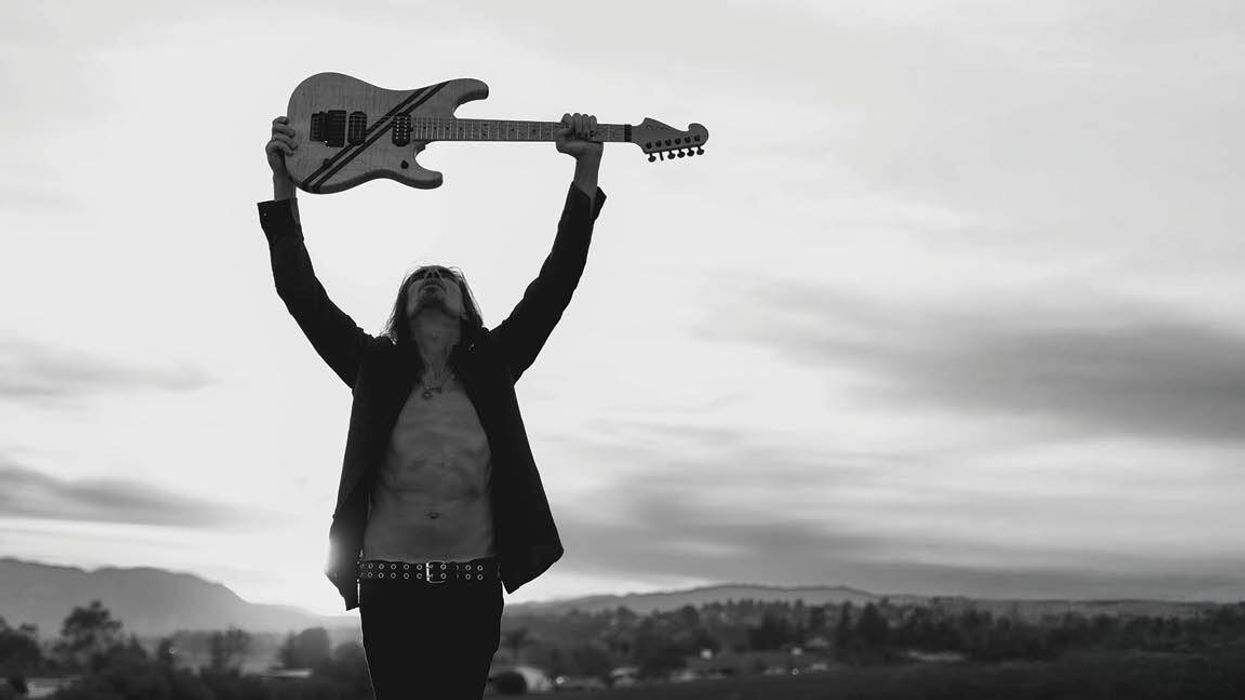
![Rig Rundown: Russian Circles’ Mike Sullivan [2025]](https://www.premierguitar.com/media-library/youtube.jpg?id=62303631&width=1245&height=700&quality=70&coordinates=0%2C0%2C0%2C0)

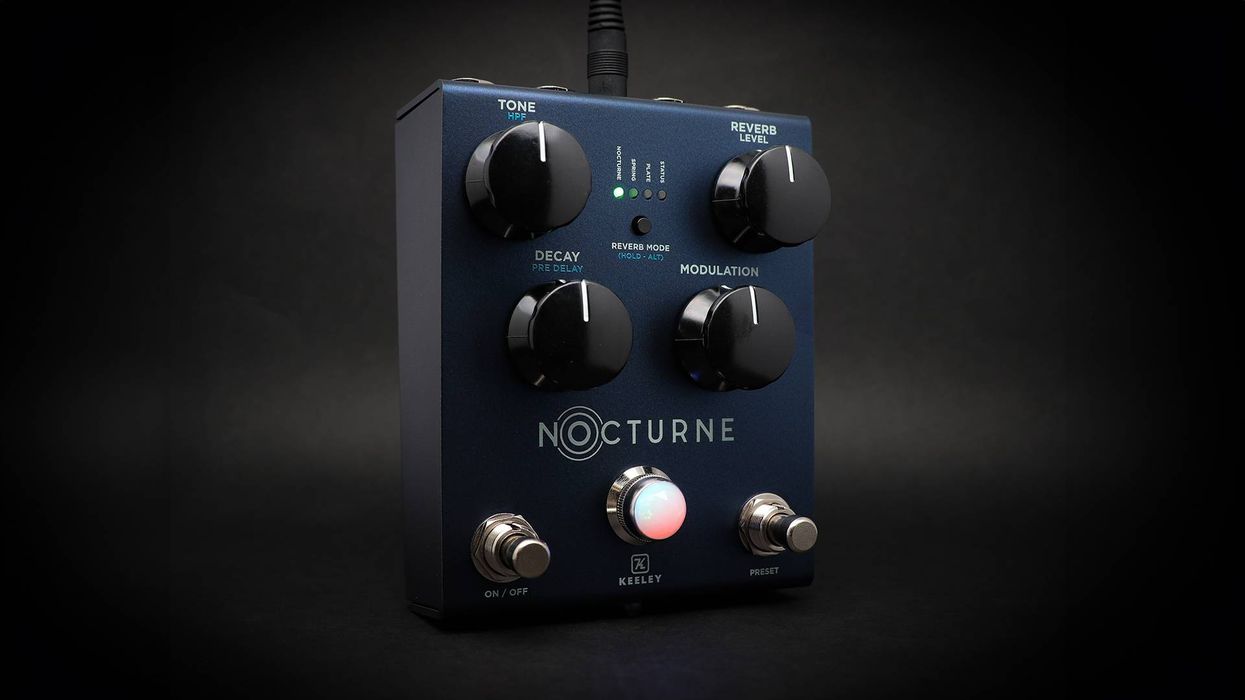
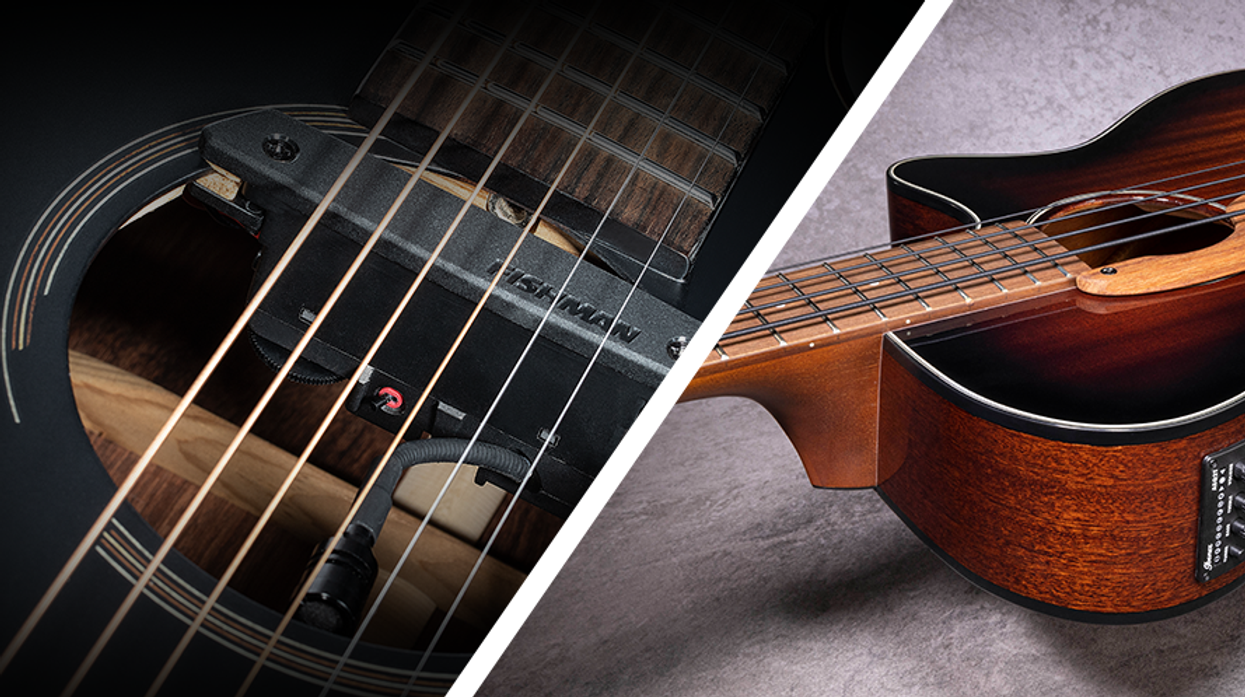










![Rig Rundown: AFI [2025]](https://www.premierguitar.com/media-library/youtube.jpg?id=62064741&width=1245&height=700&quality=70&coordinates=0%2C0%2C0%2C0)




















 Zach loves his Sovtek Mig 60 head, which he plays through a cab he built himself at a pipe-organ shop in Denver. Every glue joint is lined with thin leather for maximum air tightness, and it’s stocked with Celestion G12M Greenback speakers.
Zach loves his Sovtek Mig 60 head, which he plays through a cab he built himself at a pipe-organ shop in Denver. Every glue joint is lined with thin leather for maximum air tightness, and it’s stocked with Celestion G12M Greenback speakers.











